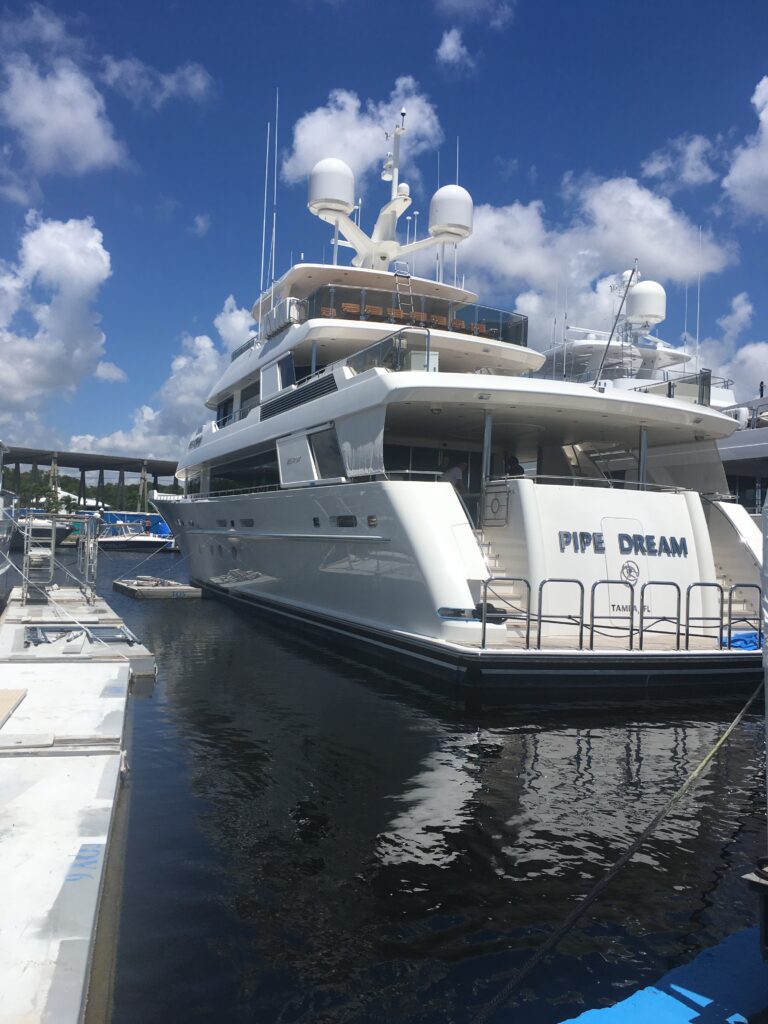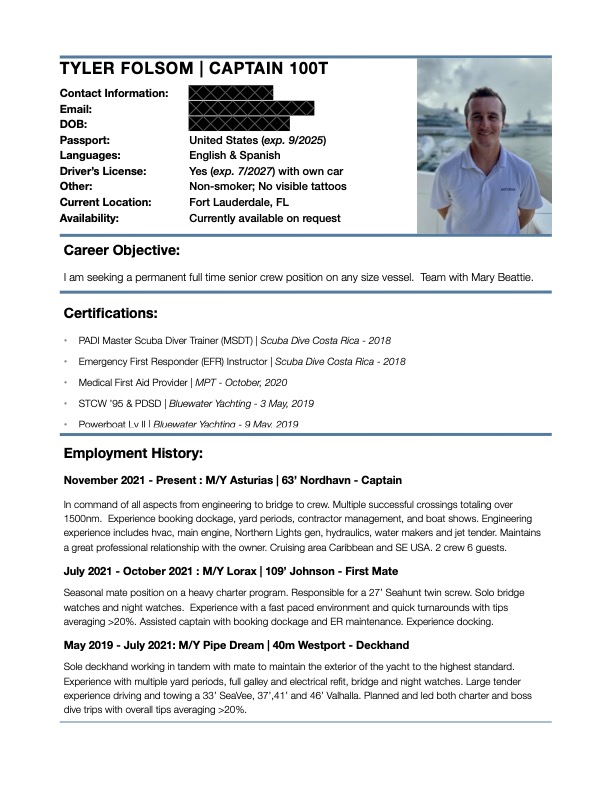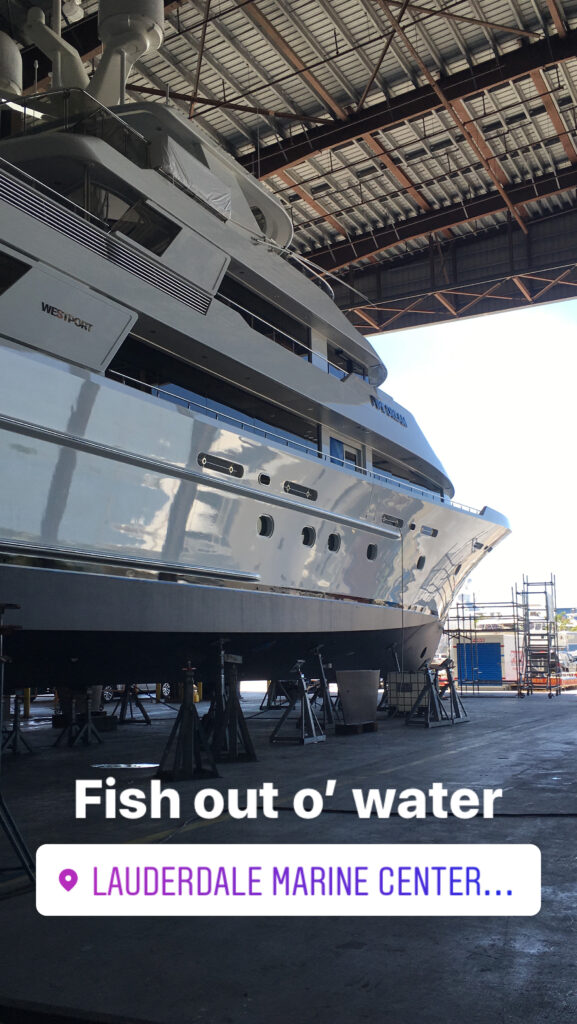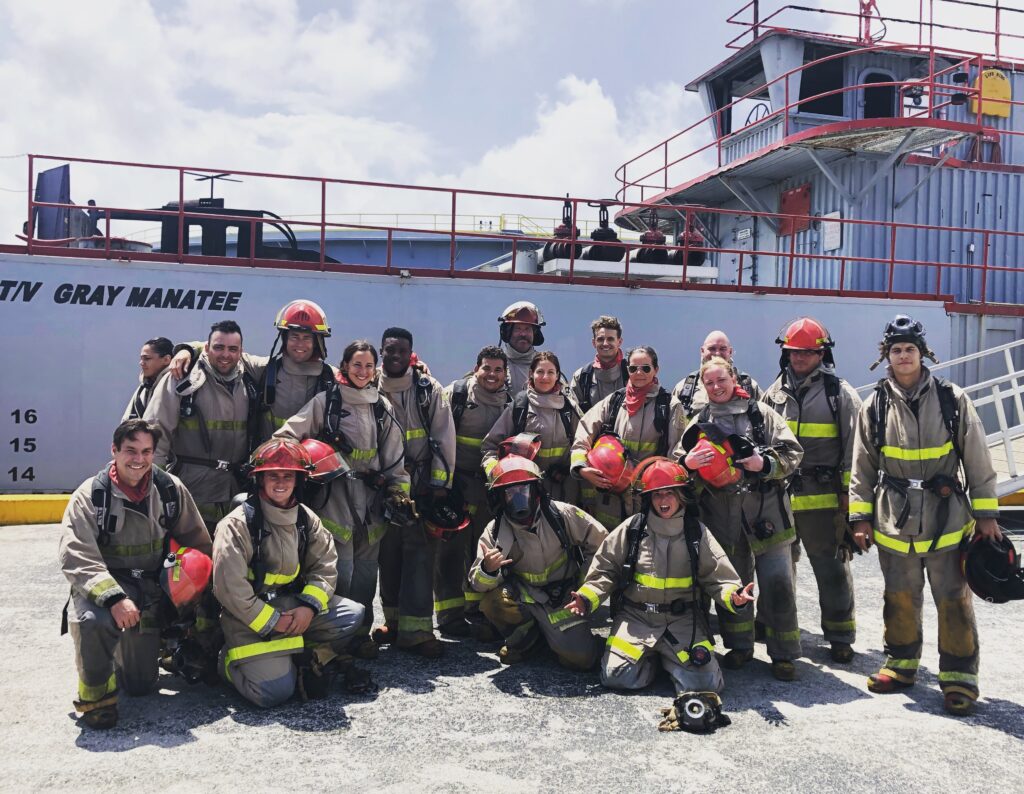What sounds better than seeing exotic destinations, sailing the high seas, and getting paid well on top of it? Many people have been drawn to working onboard yachts for these reasons and more. While having an interest in getting started on this career path is the first step, there are many other things that will need to be done before you can cast those lines and call yourself a professional yachtie!

Get a good headshot
When I was starting out many moons ago, I was surprised to find that a yachting CV is quite a bit different from a traditional land based resume. This includes information about yourself that normally wouldn’t make it such as your photograph. A nice picture in a polo, nice haircut, and preferably with some boats in the background will do just fine. This is so that captains and yacht owners will know they are hiring someone who is kept up. Crew are an extension of the yacht they work on. I have found that many of the highest caliber yachts have some of the most professional and mature crew. Other info to include that differs from land based resumes are your nationality, passport/driver license expiration dates, your current location, and even if you are a smoker or not.

Get to a yachting hub
I cannot speak for the European yachting hubs but I can definitely tell you that if you want to get a job on a yacht, the first thing you will need to do is get yourself to a yachting hub. In the USA, this is mainly South Florida (Fort Lauderdale in particular). This will put you in proximity to the largest amount of private and charter super yachts on planet earth. During the hiring process, many captains and owners will not even consider you if you are not located reasonably closeby. As you gain more experience and certifications/licenses you will be able to apply for those jobs located off the beaten path, but for your first job, try to get to Lauderdale. For accommodation, try staying in a crew house rather than an airbnb. While usually cheaper, these are geared toward yachties that are starting out or between jobs and have been a great way to network.

Get your STCW and ENG1
The most important step to landing your first job is to make sure your certificates are up to date. The most basic entry level cert you will need is your STCW. This stands for the standards of training, certification, and watch keeping for seafarers and is your golden ticket to your first job. This course takes 5 days and will run you around $1000. It covers first aid, survival craft, fire fighting, and duties of seafarers. With this ticket, you will have the minimum training to be able to work on nearly any commercial vessel out there. I recommend going through my favorite school Maritime Professional Training in Fort Lauderdale. The next cert you will need is called an ENG1 and is a basic medical assessment which covers eyesight and hearing (to make sure you can see light signals and hear sound signals). This can be done in Lauderdale and costs around $150 and 30 minutes of your life.

Get started networking
The final step to landing that oh-so-sweet yacht job is to network your tail off. Honestly, you really can never do enough networking. This industry is incredibly small, and while there may seem like there are tons of different crew out there, there are few professional crew that end up sticking it out for the long run. The best way to get started is to work with crew agents. This was how I ended up landing my first job and was how Mary and I landed our current job! Crew agents are the go between for crew and captains/owners. Captains/owners will come to a crew agency and recruit their help searching for qualified and suitable candidates. The agent will then comb through their database and present the captain/owner with a few possible hires. Once the new hire has been on the boat for a certain amount of time (usually a month) the captain will pay the agent a finders fee (typically 1 months salary. You really want to make sure you are checking in with agents and that you are upholding your reputation since if the agent doesn’t think you are quality crew, they definitely will not put you forward. I recommend working with MeridianGo and Luxury Yacht Group. Other good ways to network are attending networking events (usually through Triton) and through dockwalking.

So! Now that you have these tips and tricks, you should be ready to get on that plane, fly down to somewhere sunny, and land your first yacht job. While this is a good starting point, these type of things take time and energy. Enjoy the journey and make sure to squirrel some of that sweet sweet cash away for when you pull into port next.
Stay safe and get moving!
Capt. Tyler